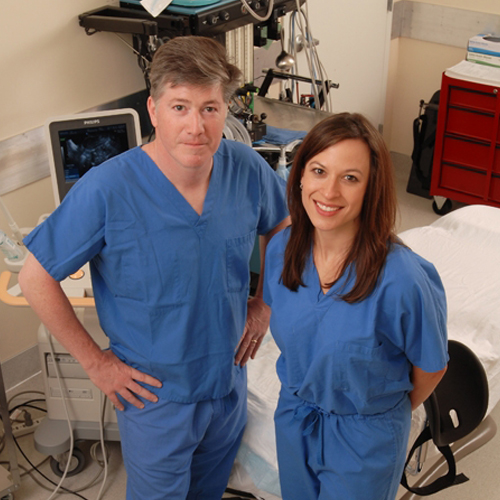Doctors’ Blog
-
The First Act of Motherhood: Single Embryo Transfer
At TRM, we believe that choosing a single embryo transfer is the first act of responsible motherhood. Mom and Dad choose to forgo the prospect of adorable twins in order to do everything they can to ensure one healthy child.
-
Why Predictable Ovulation Is Important
Dr. Murray discusses the important role that ovulation plays in a woman’s overall health and well-being, whether or not she is trying to pregnant.
-
Tubal Ligation Reversal vs. In Vitro Fertilization
Dr. Murray says one of the most common questions he gets asked by physicians and patients in the Southeast is, how does tubal ligation reversal compared with IVF? His answer.
-
A Fertility Doctor’s Personal Battle
Before he became a fertility doctor and co-founded TRM, Dr. Murray’s approach to medicine was powerfully shaped by his own battle with infertility. This is his story.
-
Coping with Infertility by Addressing Shame, Couples Communication & Fielding Others’ Questions
Four marriage and family counselors reveal pearls of wisdom for couples and individuals coping with infertility, emphasizing open and honest communication.
-
Couples Counseling When Infertility Dashes Their Dream
Couples counseling for infertility addresses many of the emotional struggles that accompany the diagnosis. In part 1 of this series of posts about relationships, four professional therapists share some advice on maintaining a healthy relationship while battling infertility.
-
Testosterone Replacement: When the Fountain of Youth is a Fountain of Sorrow
Testosterone replacement therapy might be helpful for men who truly need it, but men who wish to become fathers should carefully consider the risks and perhaps consider alternative treatment methods. Dr. Murray explains.
-
Demystifying the IVF Process – Standard, Natural and Mini-IVF
Standard IVF, natural IVF and mini IVF share the same ultimate goal, but how are they different? Dr. Rink Murray explains.
-
Should I Delay Pregnancy or IVF Because of The Zika Virus?
When it comes to the Zika virus and pregnancy, especially with IVF, let’s be vigilant, not panicked. Here’s what you need to consider before changing your fertility treatment or pregnancy plans.
-
TRM for the Community: Dr. Scotchie Wins Dare to Dance Competition
TRM’s Dr. Jessica Scotchie dusted off her dancing shoes and polished some killer moves in support of kidney disease in Chattanooga.










